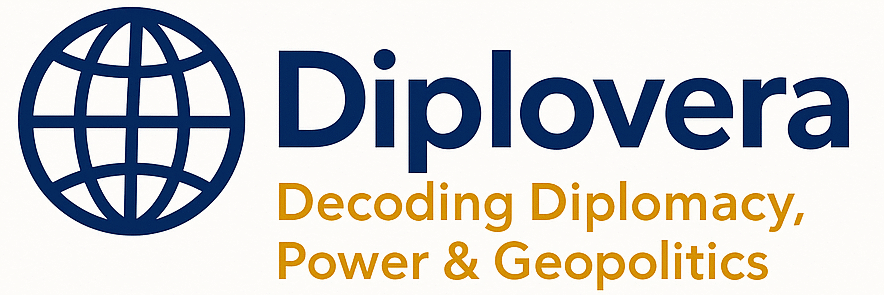Did Pakistan Just Sell Its Future? America’s Oil Deal Raises Alarming Questions
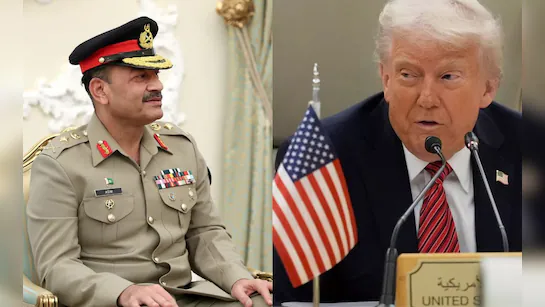
The recent oil deal between the United States and Pakistan has ignited controversy across South Asia and beyond. While official details remain undisclosed, insiders confirm that Pakistan’s military leadership facilitated direct access for American energy firms—raising urgent questions about the army’s control over national resources and the absence of civilian oversight.
With U.S. President Donald Trump actively reshaping American foreign policy through aggressive energy diplomacy, this deal appears to be more than just an economic agreement. For many observers, it symbolizes a return to transactional geopolitics—where strategic favors are exchanged for military cooperation or financial relief.
As Pakistan reels from economic instability and public unrest, critics fear that the country’s most valuable natural resource is being bartered away by the military elite—for short-term survival at the cost of long-term sovereignty.
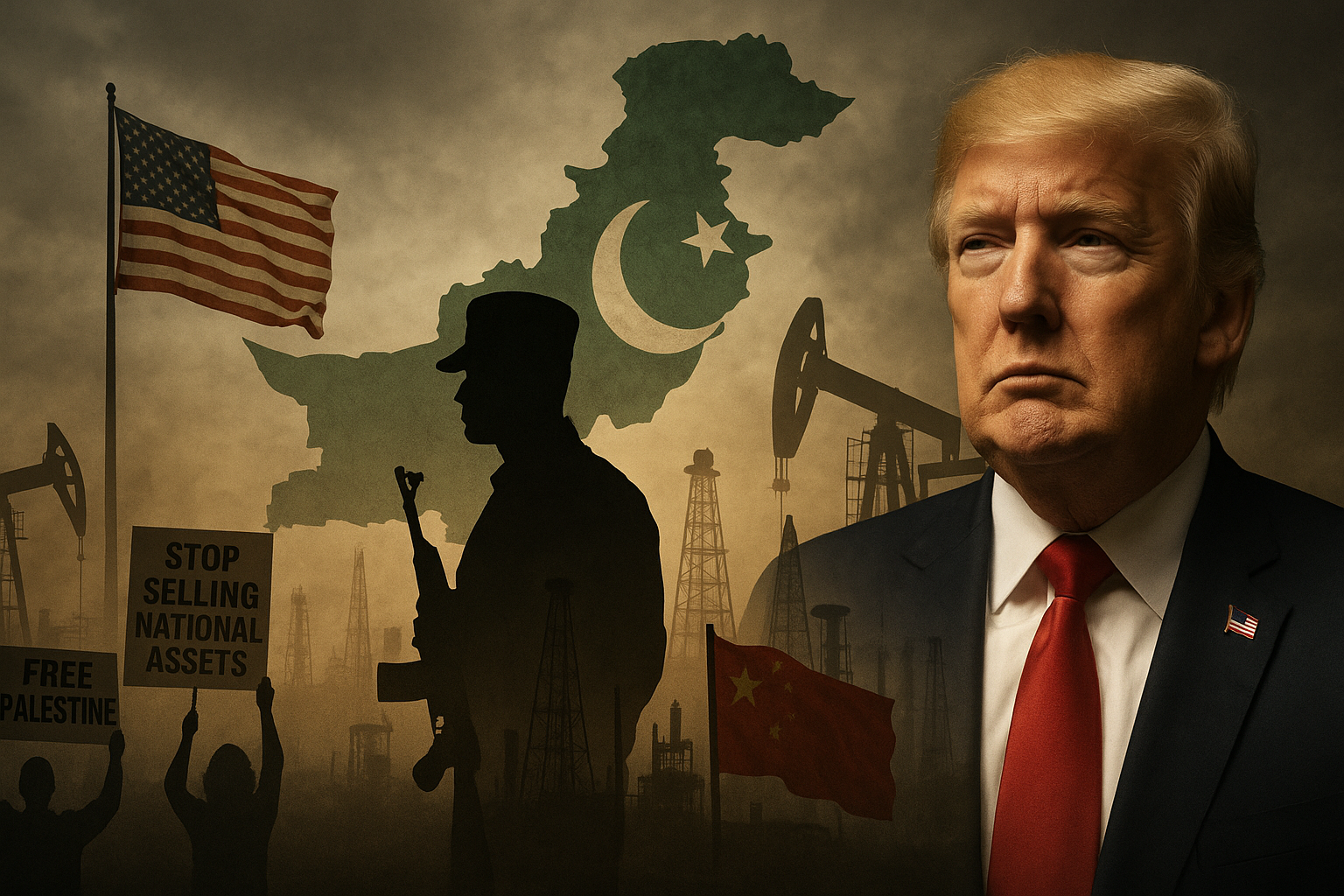
Since its establishment in 1947, Pakistan’s military has remained the country’s most dominant political institution, often overriding civilian governments in matters of national interest. From engineering electoral outcomes to directing foreign policy, the Pakistan Army has consistently positioned itself as the ultimate power broker—especially in decisions involving national security, territory, and natural resources.
This trend has historically included strategic concessions to foreign powers, most notably China. Over the past two decades, Pakistan has granted Beijing significant control over assets like Gwadar Port, critical mineral zones in Balochistan, and infrastructure corridors under the China-Pakistan Economic Corridor (CPEC). These moves, while often framed as development partnerships, have raised concerns about debt traps, sovereignty erosion, and public exclusion.
Simultaneously, Pakistan’s adversarial relationship with India has fueled militarization and secrecy around national resources. With both nations engaged in high-stakes strategic competition, including over Kashmir and regional influence, any major discovery—especially of oil—is treated not just as economic opportunity but as a potential weapon of leverage.
The newly unearthed oil reserves, believed to be located in Pakistan’s south-western region, arrive at a moment of deep economic desperation and global realignment. The return of Donald Trump to the U.S. presidency, coupled with Pakistan’s growing isolation from traditional financial institutions, sets the stage for a deal that is less about mutual benefit—and more about strategic urgency.
As with past moves, the people of Pakistan have had little say. Civil society, parliament, and provincial stakeholders have been largely excluded from discussions, while military-linked companies and intermediaries reportedly manage the deal behind closed doors.
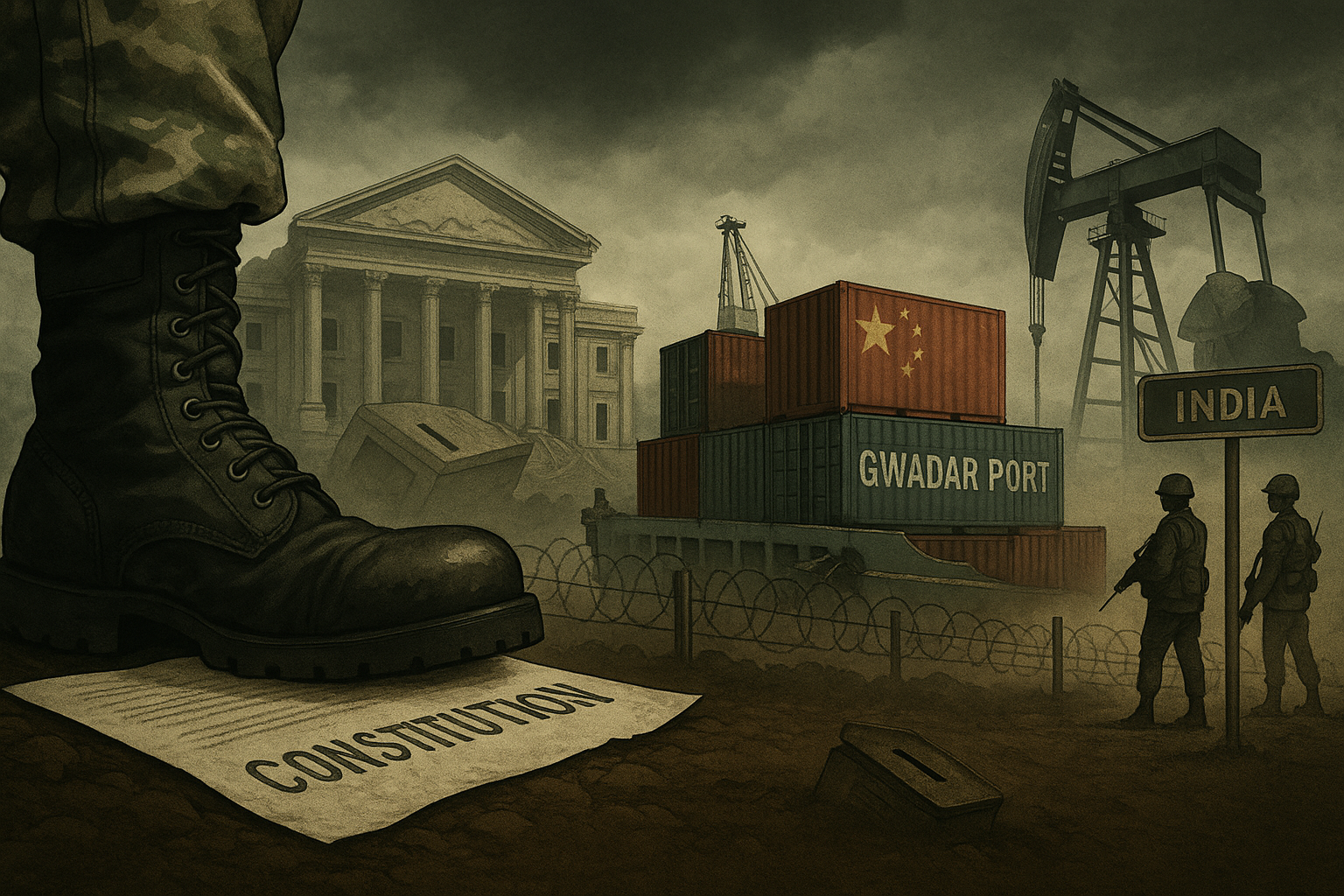
The Military Trap: How Pakistan’s Army Traded National Wealth for Control
For decades, the Pakistan Army has legitimized its stranglehold on the state through one recurring narrative: the unresolved Kashmir conflict with India. This single issue has been weaponized to justify military coups, dismantle elected governments, and drain national budgets into defense spending, often at the expense of development and public welfare.
Since the 1950s, Pakistan has witnessed repeated instances of military takeovers—from General Ayub Khan to General Zia-ul-Haq and General Pervez Musharraf. Each of these regimes used the rhetoric of national security, Islamic identity, and anti-India sentiment to entrench military rule and suppress democratic accountability. The Kashmir dispute became both a shield and a sword—a reason to remain in power and a tool to silence dissent.
The same playbook extended into foreign policy and resource management. Instead of using strategic assets like oil reserves, rare minerals, or deep-sea ports for national upliftment, Pakistan’s army has often traded them away to external powers—first to China, and now, it seems, to the United States. These decisions rarely involve public consultation and almost never benefit the average Pakistani citizen.
What makes this even more alarming is the Army’s long-documented association with extremist networks. Pakistan has provided safe havens for some of the world’s most wanted terrorists, including Osama bin Laden, the mastermind of the 9/11 attacks, who was found and killed by U.S. forces in Abbottabad, not far from a major military academy. This raised serious doubts about whether the military was complicit—or at best, negligent.
At every critical juncture, the Pakistan Army has chosen to sacrifice internal resources and international credibility to maintain its internal supremacy. Whether it's leasing out strategic land to China or now signing energy deals with the U.S. under Trump, the pattern remains consistent: deals are made not for economic reform, but for regime survival.
The result? Pakistan’s people remain trapped in a cycle of poverty, debt, and declining global standing. While elites profit and generals consolidate power, the average citizen is left with rolling blackouts, food shortages, and soaring inflation.
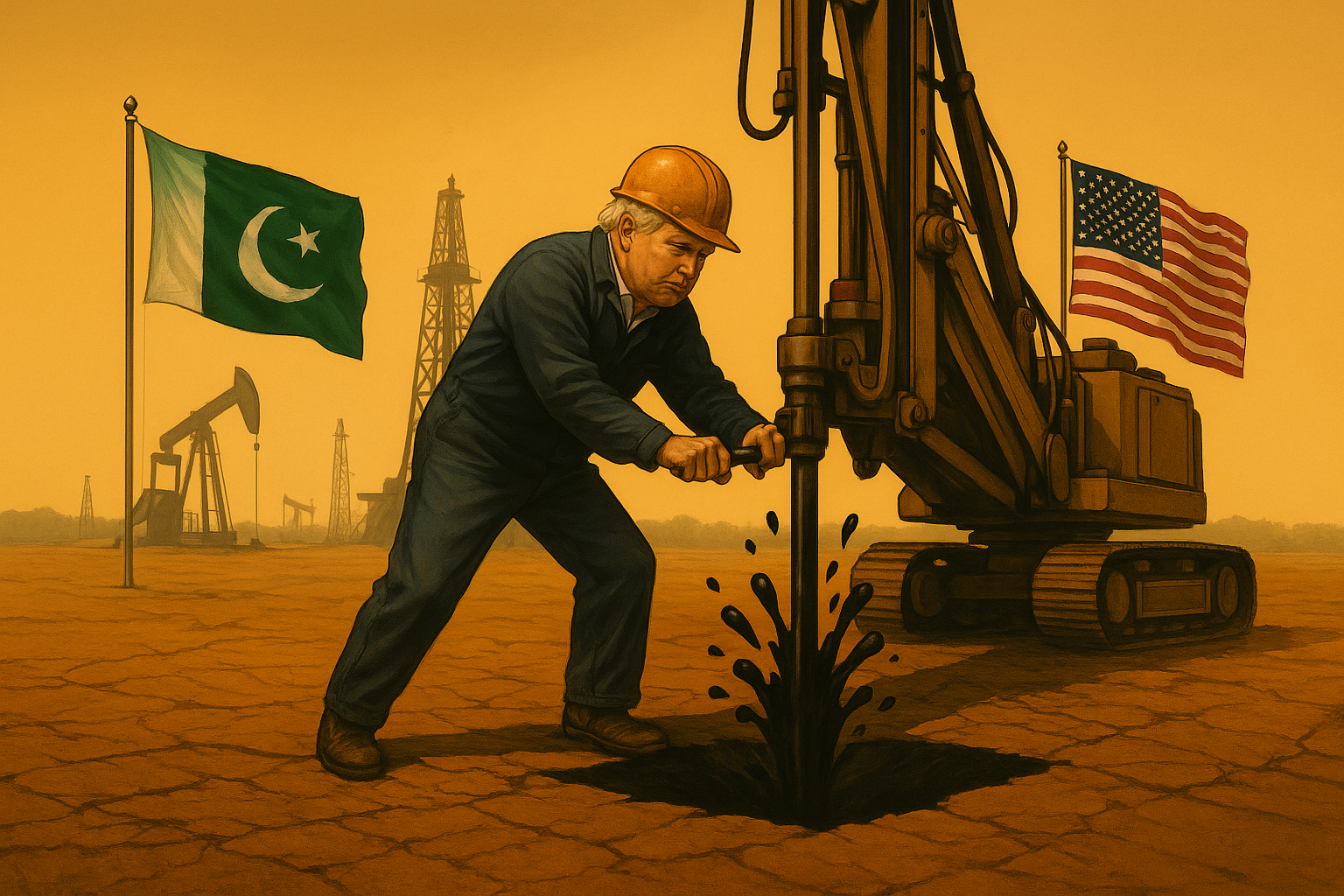
Elite Wealth, National Decay: The Civilian Betrayal and Religious Manipulation Behind Pakistan’s Decline
While the Pakistan Army maintains a firm grip on national decisions, the country’s political leadership has failed equally in protecting public interest. Over decades, successive civilian governments—from Zardari to Nawaz Sharif to Imran Khan—have either bowed to military dominance or quietly enriched themselves under its shadow. As a result, no lasting democratic institution has emerged that can challenge or even question the army’s unchecked control.
Pakistan’s major political parties are deeply fractured, often focused on dynastic rule and regional power rather than national transformation. Instead of strengthening constitutional accountability, these parties have frequently aligned with the military to preserve their own power and privileges. This unholy alliance has left the public with no genuine leadership, no reform, and no voice.
Meanwhile, a silent economic migration is underway—not of common citizens, but of the elites. Most retired generals, powerful bureaucrats, and former prime ministers own luxury properties across Europe, the Middle East, and North America. London, Dubai, and Toronto have become the unofficial retirement homes for Pakistan’s ruling class. These are not mere coincidence—they are symptoms of a system where power is used not to serve, but to extract.
Inside Pakistan, however, poverty deepens. Youth unemployment is exploding, infrastructure is crumbling, and even basic healthcare is out of reach for millions. The contrast is staggering: private jets for the powerful, power cuts for the people.
Perhaps the most insidious tool in this system is the weaponization of religion. The Pakistan Army has repeatedly used Islamic slogans and religious narratives to justify its actions, disguise its greed, and distract the public from accountability. National campaigns often feature religious overtones, with soldiers portrayed as divine protectors rather than public servants.
This blurring of the line between state and faith, military and religion, has dangerously eroded the foundations of a constitutional democracy. In any modern state, the role of the military should be defense—not propaganda, not governance, and certainly not ideological enforcement.
Until the Pakistani public demands transparency, resists religious manipulation, and holds both the army and politicians accountable, these cycles will continue. And so long as deals like the latest U.S.–Pakistan oil pact are signed in the shadows, the true wealth of the nation will serve the few, not the many.
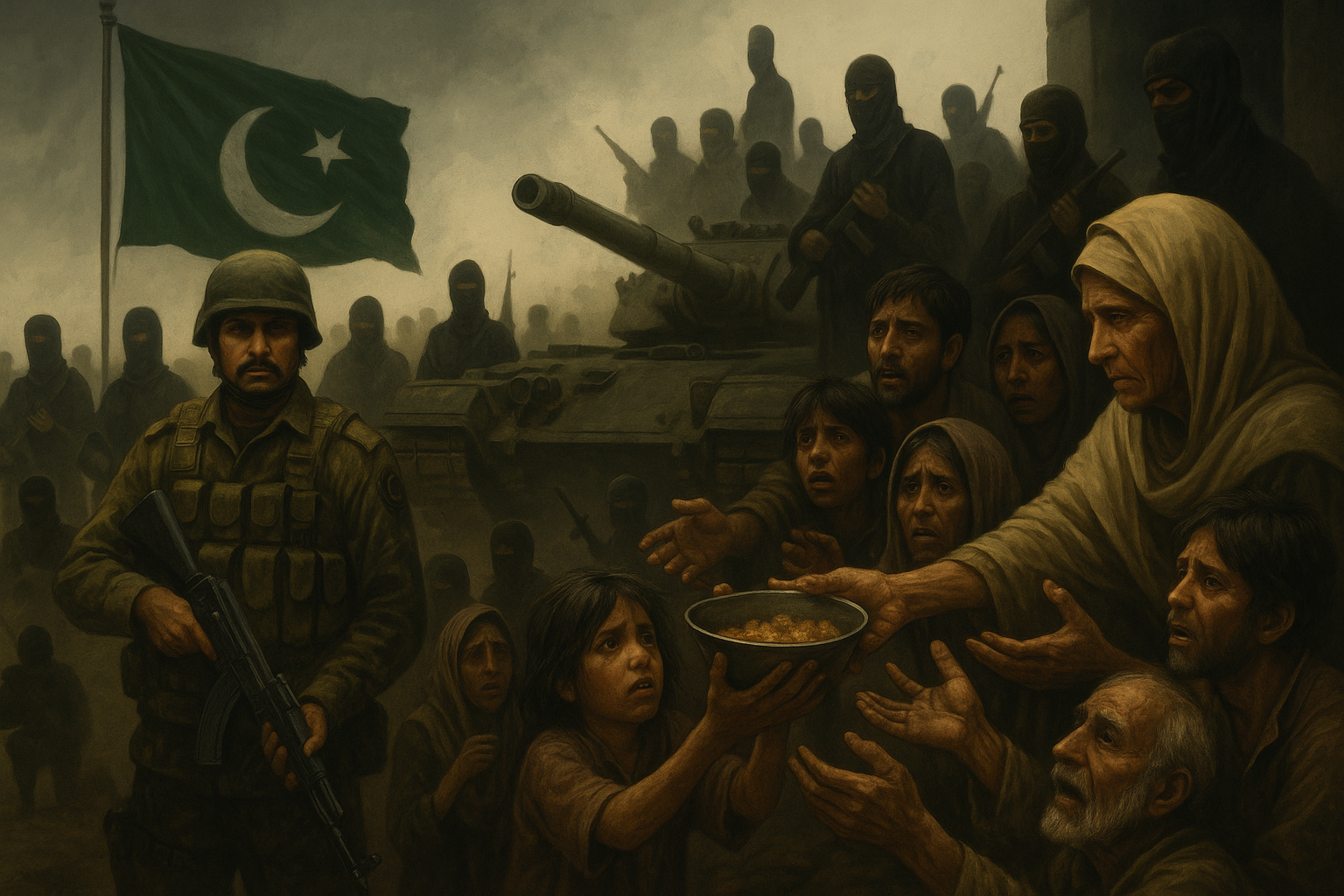
Caught Between Empires: How Pakistan’s Oil Deal Reflects a Geopolitical Surrender
The recent oil agreement between Pakistan and the United States is not just an economic transaction—it’s a strategic moment that exposes Pakistan’s fragile position in the shifting regional power landscape. While the country tries to balance its ties with China, manage its endless rivalry with India, and voice solidarity with Palestine, the truth is: Pakistan is no longer in control of its own narrative.
For decades, India and Pakistan have locked horns diplomatically, militarily, and ideologically. From the Kashmir conflict to international lobbying, each nation has fought for regional supremacy. But while India has surged ahead economically and diplomatically, forming partnerships with both the U.S. and Israel, Pakistan has remained stuck—relying on foreign aid, remittances, and now oil-based bargaining.
At the same time, China has expanded its footprint across Pakistan, thanks to projects like the China-Pakistan Economic Corridor (CPEC). These are not mere development deals—they are long-term leases, loan traps, and strategic encroachments that give Beijing influence over ports, roads, and now possibly even energy reserves. China is quietly becoming the landlord, while Pakistan remains the tenant of its own territory.
Now enters America under President Donald Trump, with a more aggressive and transactional foreign policy. For Washington, this oil deal is a strategic win—a way to gain regional leverage, secure energy interests, and possibly counterbalance China’s grip. For Pakistan’s ruling elite, it’s a lifeline. But for the people of Pakistan, it feels like another betrayal.
This discontent is amplified by America’s unwavering support for Israel, especially during the ongoing humanitarian disaster in Gaza. Every day, hundreds of Palestinian children are killed, homes are leveled, and millions face starvation, all while American-made weapons fuel the destruction. Pakistan’s citizens—many of whom passionately support the Palestinian cause—have taken to the streets, angry and heartbroken, chanting against U.S. foreign policy.
And yet, despite this national outrage, the Pakistani government—led by its military and diplomatic elite—has quietly proceeded with the U.S. oil deal. The hypocrisy is staggering: a country that claims moral support for Palestine is at the same time signing lucrative agreements with the very power backing Gaza’s destruction.
This contradiction lays bare Pakistan’s lack of diplomatic weight. It neither has the moral courage to confront global injustice, nor the political independence to walk away from exploitative deals. While China profits from infrastructure control, and America gains energy access, Pakistan is left isolated, divided, and morally compromised.
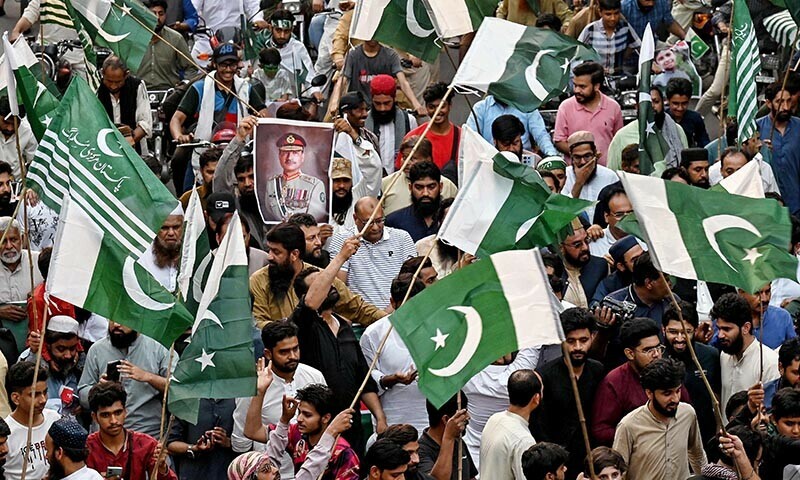
A Nation at the Brink: What Lies Ahead if Pakistan Refuses to Change Course
If Pakistan continues on its current trajectory—marked by military dominance, political weakness, and foreign dependency—the consequences could be irreversible. The oil deal with the United States may seem like a short-term victory for the ruling elite, but in reality, it signals a deepening surrender of national assets, one that could push the country into another phase of economic and diplomatic decline.
The pattern is painfully familiar: the Army invokes national security to monopolize power, while politicians are either complicit or paralyzed. Critical decisions—whether related to natural resources, foreign loans, or military operations—are made in secrecy, without parliamentary debate or public consent. Strategic assets are traded like poker chips in backroom deals, often benefiting foreign powers more than the nation itself.
If this continues, Pakistan risks becoming a client state—first to China, now to the United States—without any real sovereignty left. Economic dependency will increase. Social unrest will rise. Global trust will erode. And worst of all, the citizens of Pakistan will be left with nothing—no energy security, no financial stability, and no democratic recourse.
The time to change course is now. Political parties must reclaim their authority, civil society must demand transparency, and the public must be informed and empowered. Pakistan’s survival cannot rest on foreign deals, religious slogans, or military narratives. It must rest on a constitutionally accountable government and a well-informed, self-respecting population.
Unless the people of Pakistan begin to challenge this cycle of resource exploitation and foreign appeasement, the country may once again find itself not just in economic crisis, but in existential peril—a state that no longer owns its land, its resources, or its destiny.
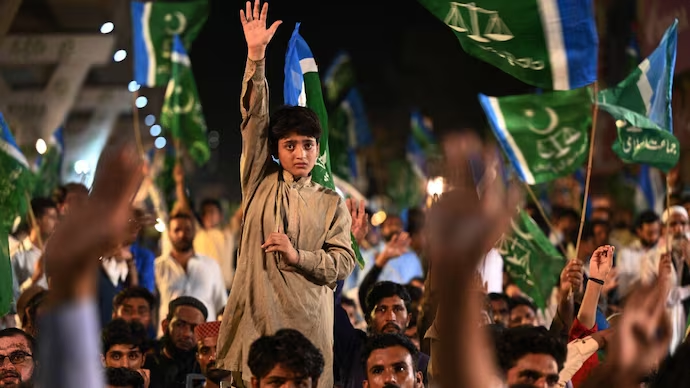
Time to Choose: Development or Decline
Pakistan stands at a critical crossroads. For far too long, its destiny has been shaped by military narratives, especially the India–Kashmir conflict, which the Army has repeatedly used to justify its dominance, suppress dissent, and drain national resources. But this approach has crippled the economy, left millions in poverty, and diverted attention from the real needs of the people.
The citizens and political leadership of Pakistan must now take a stand. They must reject the misuse of Kashmir as a permanent war cry, and instead demand accountability, transparency, and reform. Pakistan's oil, gas, minerals, and land are not bargaining chips for military leverage or foreign favors—they are national assets that must serve the people, not elite interests.
On the global stage, Pakistan must adopt a balanced and pragmatic diplomatic strategy. It cannot afford to blindly align with either the U.S. or China, nor can it continue sacrificing strategic autonomy for short-term bailouts. Most importantly, it must stop trying to outmuscle India militarily and start engaging diplomatically.
India, despite its differences with Pakistan, has shown how a country can pursue development, build global partnerships, and protect its interests—whether by importing discounted Russian oil or navigating Western pressure with strategic autonomy. Pakistan too must rise above ideological fixations and geopolitical fear.
If Pakistan resolves its internal power imbalances, builds peaceful ties with neighbors, and leverages its resources for national progress, it can still chart a new future. But if it continues to trade sovereignty for survival, militarism for modernity, and symbolism for substance, it will only move further away from becoming the nation its people deserve.
